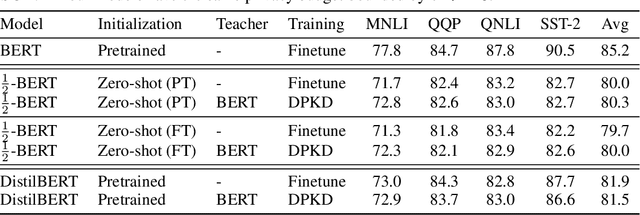Differentially Private Model Compression
Paper and Code
Jun 03, 2022



Recent papers have shown that large pre-trained language models (LLMs) such as BERT, GPT-2 can be fine-tuned on private data to achieve performance comparable to non-private models for many downstream Natural Language Processing (NLP) tasks while simultaneously guaranteeing differential privacy. The inference cost of these models -- which consist of hundreds of millions of parameters -- however, can be prohibitively large. Hence, often in practice, LLMs are compressed before they are deployed in specific applications. In this paper, we initiate the study of differentially private model compression and propose frameworks for achieving 50% sparsity levels while maintaining nearly full performance. We demonstrate these ideas on standard GLUE benchmarks using BERT models, setting benchmarks for future research on this topic.
 Add to Chrome
Add to Chrome Add to Firefox
Add to Firefox Add to Edge
Add to Edge